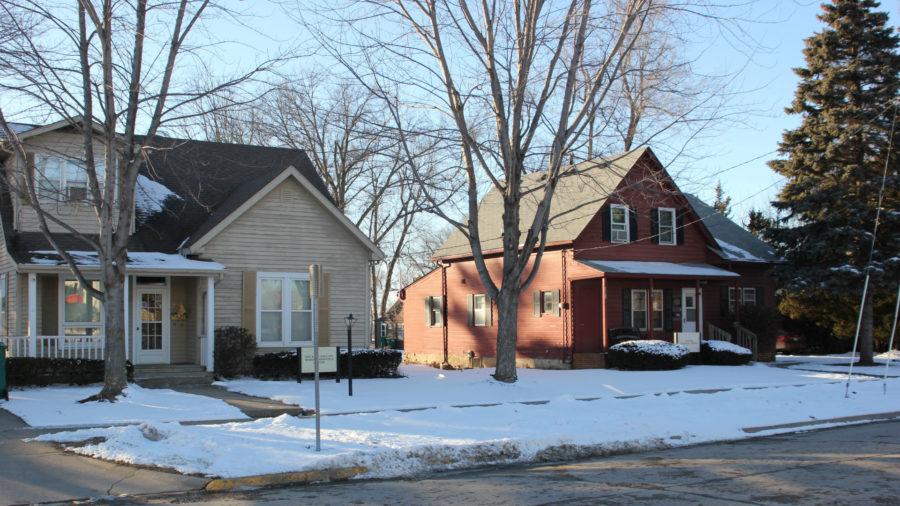Housing options for upcoming selections
February 20, 2016
Dorms and apartments aren’t the only options for Simpson College students considering their housing selection for next year.
For fall 2016, Simpson has seven theme house options for students to utilize, as opposed to choosing the regular Buxton Hall or Hamilton House.
The Performing Arts theme house is the longest continuously running theme house on campus.
This year marks its 20-year anniversary as a theme house, according to theatre professor and house adviser Jennifer Nostrala.
Bill Hitt, a senior living in the PA house, serves as the house manager of the six-person unit.
Hitt has lived in a dorm, apartment and theme house while at Simpson and said the latter is the most likely to prepare students for life beyond college.
“Living in Buxton won’t get you prepared to live after college,” he said. “All the space in a theme house is really the best part, and having only a few people who use your laundry and full-size kitchen is so convenient.”
The theme houses operate differently from many other housing options on campus but still enjoy the benefits of being Simpson owned and operated.
“Maintenance has been really awesome this year,” Hitt said. “One day they brought by a new coffee table without us even asking for one or requesting one.”
A notable difference between theme houses and other campus housing options is the lack of a community adviser overseeing the area. The houses are still overseen by Residence Life staff, just not student staffers.
When members fill out an application for theme housing, one must serve as the house manager as Hitt does for the PA house this year.
Along with the alternative living option comes a special list of responsibilities required by groups wishing to live in a theme house.
The theme of each house is determined by the members applying for the house.
Exceptions are the Carver Cultural Center, Kate Shelley Women’s Resource Center and La Casa Unida houses, which are predetermined by past college decisions to highlight key focus areas.
Themes are largely determined by the service focus of the house, whether it be cancer awareness, animal cruelty prevention or other philanthropic ideas. The residents of theme houses are required to complete one theme-related project on campus each semester, and each member must complete 15 service hours each semester, not necessarily related to the theme.
Recently more student organizations have requested theme houses, for example Sigma Lambda Gamma, and a group of speech and debate team members this year.
Those organizations still must meet the service requirements but have the opportunity to find members from their organizations to fill the house more easily.
Not all theme houses continue from year to year.
Junior Jessica Gronke lived in a theme house her sophomore year, which focused on animal cruelty prevention, and sees both the positives and negatives to the experience.
“While it’s great getting your own house and your own space, the houses aren’t really that modern or well equipped,” Gronke said. “We didn’t have a dishwasher, which I didn’t like, but the experience of living in the house was still good and a good way to learn beyond the regular dorm lifestyle.”
Gronke’s theme house group did not continue beyond that year, but many houses change over from year to year.
It’s crunch time to get a group together for theme houses for 2016-2017.
Applications for theme houses are due Feb. 22 to Residence Life and require all applying members’ signatures, as well as the projected theme and service projects and an adviser to the house.
More information, as well as application links, can be found at http://simpson.edu/reslife/room-selection/theme-housing/.






